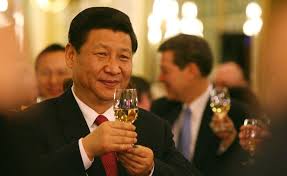Trade War Theater: Why U.S.–China Strain May Be Beijing’s Strategic Gift

The tension between the Xi Jinping–led Chinese government and the Donald Trump administration has escalated—tariffs, rare-earth export controls, maritime sanctions—all pieces on the board in the modern game of economic rivalry.
But beneath the surface of global economic strain lies a more strategic calculus for Beijing. With internal pressures mounting—from sluggish growth, youth unemployment, to political restructuring—the trade war offers a potent distraction and rallying point. A narrative of external adversary helps redirect domestic attention, bolster patriotic economy-talk and justify regulatory tightening.
According to experts, China is navigating a paradox: while publicly warning that “no one wins a tariff war,” it appears to be positioning itself to win the war America believes it’s fighting. The timing is telling: a major Communist Party plenum, looming five-year plans and internal reform debates create a backdrop where deflection is as valuable as productivity.
In short: the trade war may be the distraction that works. For Xi, the narrative of economic resilience, external threat and national unity is a tool—perhaps the best he could ask for. While Washington negotiates loud tariffs, Beijing builds quiet strategies. And while the world watches goods cross borders, the real story plays out in boardrooms, state parliaments and the long game of global influence.
By Emily Harper
Emily Harper is a culture and entertainment writer for VÉRITÉ Magazine, covering the intersection of music, luxury lifestyle, and digital innovation. She has previously written for emerging tech publications. Emily holds a degree in Media & Cultural Studies and is based between London and Los Angeles.




